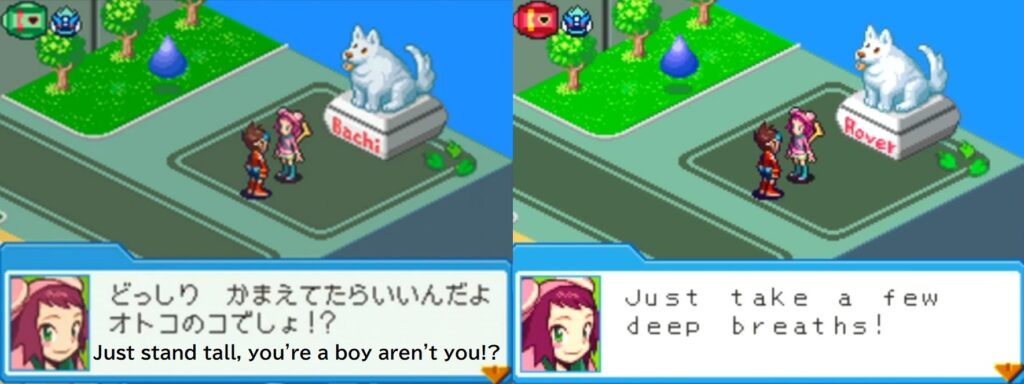
Capcom’s recent tweet shedding light on the intricate process of game localization sparked both interest and controversy within the gaming community. Localization, as explained by Capcom, goes far beyond mere translation, delving into the realms of cultural adaptation, context preservation, and inclusive storytelling. While the tweet aimed to enlighten players about the complexities involved, it also ignited a debate regarding the perceived intrusion of cultural sensitivities and political correctness.
Localization, the process of adapting a game for global audiences, is indeed a colossal undertaking, often spanning months to a year.
The Making of Lunar: Silver Star Story Complete (Voice Acting)
This process became familiar to many gamers with titles like Lunar: Silver Star Story Complete, offering insights into why localization is crucial for enhancing player experiences worldwide.
Capcom’s Summary of Localization Process:
What is localization?
Embark on a global adventure through the lens of game localization! Beyond mere translation, we’re diving into the art of cultural adaptation, preserving context, and inclusive storytelling. Join us as we unravel the intricacies that make games resonate worldwide.
🌏 Not Just Translating
Localization isn’t just about translating words; it’s about adapting the game for a global audience. Think cultural nuances, idioms, and regional flair. A good localization makes players feel right at home, wherever in the world they are!
🧐 The Importance of Context
Lost in Translation? Nah! Preserving the vibe is key. Jokes, references, and even gameplay elements might need a little cultural remix. It’s important to find that sweet spot to make sure players get the intended experience without feeling like something got lost in the process.
🗣️ Bridging the Linguistic Gap
Each language has its unique structure and cultural context. Our teams work to ensure the narrative and dialogue maintain coherence and emotional impact. It’s not just about words; it’s about capturing the essence of the story in a way that resonates with the target audience.
🚫 Cultural Sensitivity in Characters
Character design and development must be culturally sensitive. What may be acceptable in one culture might be offensive in another. Localizers play a crucial role in ensuring that characters are relatable and respectful, avoiding stereotypes or other references that could be perceived as negative in specific cultures.
🌈 Inclusive Language and Representation
Localization efforts extend to promoting inclusivity through language and representation. This involves adapting not only the linguistic aspects but also addressing gender-specific language, cultural norms, and diverse perspectives. The aim is to create an immersive experience where players from different backgrounds can identify with the characters and narrative. This can be very challenging for certain languages due to grammar.
😂 Adapting Humor and Wit
Humor often relies on cultural references and wordplay, making it a challenging aspect of game localization. Translators must carefully navigate puns, jokes, and cultural references to maintain the intended comedic effect. This requires a deep understanding of the target audience’s sense of humor while staying true to the original wit.
🧩 Consistency in Terminology
Maintaining consistency in terminology is crucial for a smooth and coherent gaming experience. This applies not only to translating words but also to ensuring that game mechanics, instructions, and lore are consistently represented across languages. Establishing a cohesive language system helps prevent confusion and enhances the overall gaming experience for players worldwide.
https://x.com/CapcomL10N/status/1778657301551038721
Despite the noble intentions behind localization, the tweet sparked outrage among some gamers who perceive it as censorship and an imposition of Western ideals on Japanese games. This sentiment stems from a broader movement within the gaming community that rejects localization efforts as promoting a “woke agenda,” specifically after the Sweet Baby Inc fallout.
Mega Man Star Force Localization Example

However, it’s important to recognize that localization serves practical purposes beyond cultural sensitivity. A recent example was the removal of the Rising Sun from E.Honda’s stage in Street Fighter. The Rising Sun is akin to the Nazi Swastika to people in Korea and other Southeast Asian countries that were subjugated by Imperialist Japan. This illuminates that the western market is not the sole reason for such localization measures. Games that fail to comply with regional standards and policies may face outright bans in certain countries. Thus, while some players advocate for experiencing games in their original language, localization remains a vital aspect of ensuring games reach diverse audiences worldwide.
Capcom’s tweet sheds light on the intricate process of game localization, highlighting its importance in fostering inclusive gaming experiences. While controversy may surround the topic, it’s essential to acknowledge the practical necessity and cultural significance of localization in the global gaming landscape.
